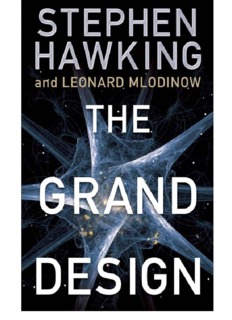Scholarships and Identity Crises in Immigrant Literature
In immigrant literature, the scholarship is more than just a financial award—it’s a symbol of hope, transformation, and at times, internal conflict. For immigrant protagonists, winning a scholarship often signifies the possibility of upward mobility, cultural integration, and recognition of merit. Yet, along with opportunity comes tension.
As these characters step into institutions and societies where they are minorities, they frequently encounter pressure to assimilate, suppress their origins, and perform a version of themselves deemed acceptable or impressive. This friction often leads to profound identity crises.
Scholarships in immigrant literature thus serve as complex literary devices—simultaneously empowering and alienating. They highlight how the pursuit of education, and the systems that reward it, can both validate and distort the immigrant experience. In this blog post, we’ll explore how scholarship narratives in immigrant fiction examine the cost of ambition, the struggle for belonging, and the painful negotiation between cultural heritage and personal advancement.
1. Scholarships as Catalysts for Cultural Dislocation
For many immigrant characters, receiving a scholarship means entering elite academic spaces that are culturally, socially, and economically foreign. These spaces often prize individualism, self-promotion, and Western ideals of success. As a result, scholarship recipients are thrust into environments where their native customs, language, and worldview are marginalized or misunderstood.
In Chimamanda Ngozi Adichie’s Americanah, Ifemelu’s academic journey in the United States is enabled by scholarships and fellowships. Though these grants allow her to attend university and gain economic independence, they also expose her to racism, loneliness, and the subtle erasure of her Nigerian identity. Her scholarship facilitates her entry into the American middle class but creates a disconnect between her past and present selves.
Similarly, in Jhumpa Lahiri’s The Namesake, Ashima and Ashoke’s son, Gogol, benefits from his family’s emphasis on education. While he doesn’t receive a scholarship in the traditional sense, his Ivy League education—made possible by his immigrant parents’ sacrifices—places him in a social world far removed from his Bengali roots. His struggle to reconcile his elite American life with his heritage is a direct result of the educational opportunities provided to him.
2. The Pressure to Perform Assimilation
Scholarships often come with unspoken expectations: recipients must demonstrate not just excellence, but also adaptability and gratitude. Immigrant characters are frequently expected to minimize or reframe their cultural identities in ways that appeal to institutions. This “performance of merit” can lead to internal fragmentation.
In Ibi Zoboi’s American Street, Fabiola Toussaint, a Haitian immigrant, dreams of attending college on scholarship. Yet her reality in Detroit complicates this vision. Fabiola is caught between her Haitian spirituality and American expectations. The version of herself that would "fit" in a college essay or scholarship interview is not her full self—it’s a curated, edited identity.
This pressure is similarly felt in Tanwi Nandini Islam’s Bright Lines, where Bangladeshi-American characters navigate Brooklyn’s academic and social landscapes. Scholarships provide educational access, but the tension between maintaining traditional values and adapting to liberal urban culture creates a rift in selfhood. The fear of “losing oneself” in the pursuit of opportunity runs through many such stories.
3. The Burden of Representation
Immigrant characters who win scholarships often bear the weight of representing their families, communities, or entire cultures. They are not just students—they are ambassadors, proof that hard work and talent can overcome adversity. While this can be empowering, it can also be emotionally exhausting.
In Ocean Vuong’s On Earth We’re Briefly Gorgeous, the unnamed narrator, a Vietnamese-American, writes a letter to his illiterate mother detailing his life in the U.S. He doesn’t explicitly reference scholarships, but his academic trajectory and literary success underscore the immigrant dream of educational uplift. Yet, his story is saturated with pain, dislocation, and queer identity. He is a product of two worlds, celebrated and misunderstood by both.
This burden is more directly explored in Edwidge Danticat’s Breath, Eyes, Memory. The protagonist, Sophie, leaves Haiti for New York, where she pursues education with the support of her family. Though not always framed as a formal scholarship, the education she receives is built on sacrifice and expectation. Sophie must carry the dreams of multiple generations on her shoulders—an experience that many children of immigrants will find hauntingly familiar.
4. Class Conflict and Academic Alienation
Even after securing scholarships, immigrant protagonists often struggle with social and emotional inclusion in academic environments. They may excel in exams but falter in forming relationships, understanding cultural references, or navigating class-coded expectations. The scholarship allows access, but not necessarily belonging.
In Imbolo Mbue’s Behold the Dreamers, the Cameroonian immigrant family sacrifices everything to build a future for their son. When education and scholarships finally become accessible, it’s clear that the American dream is not as inclusive or benevolent as it seems. The system gives—but also takes, often demanding silence, gratitude, or assimilation in return.
Min Jin Lee’s Pachinko follows generations of a Korean family in Japan. Though the story spans decades and countries, education remains a key theme. The family's younger members receive opportunities for advancement through scholarships, yet their outsider status remains unchanged. The invisible barriers of ethnicity, nationality, and class persist, despite merit or achievement.
5. Reconciling Dual Identities
One of the most poignant outcomes of scholarship-driven identity crises in immigrant literature is the character’s journey toward integration or acceptance of dual identities. After wrestling with feelings of impostor syndrome, shame, or alienation, many protagonists ultimately learn to embrace both their heritage and their ambitions.
In Zadie Smith’s White Teeth, characters from immigrant families deal with educational aspirations, generational trauma, and multicultural conflict. Scholarships provide access to British academic institutions, but identity crises loom large. The characters’ evolution is marked not just by academic success, but by learning to reconcile competing parts of themselves.
Similarly, in Celeste Ng’s Everything I Never Told You, Lydia, the daughter of a Chinese-American father and white mother, struggles under the weight of her family’s educational ambitions. Though her story ends in tragedy, it highlights the danger of tying identity and self-worth solely to academic success and external validation.
6. Literary Techniques: Essays, Letters, and Inner Monologues
Authors often use scholarship essays or application letters as literary devices to dramatize identity crises. These forms demand introspection from the character, forcing them to articulate their life story, values, and goals—often in a way that exposes the tension between authenticity and performance.
In Nicole Dennis-Benn’s Patsy, the title character and her daughter both strive for better futures. For the daughter, Tru, education becomes the pathway to self-definition. In writing about herself—whether in journal entries, essays, or conversations—Tru begins to question what parts of her identity she is willing to share or suppress in order to “succeed.”
These literary moments allow readers to see the psychological cost of opportunity. The scholarship essay, then, becomes a kind of mirror—reflecting back not only what the character wants, but also what they fear losing.
Conclusion: Beyond the Prize
In immigrant literature, scholarships are never just about money. They are rich with symbolism: of hope, transformation, sacrifice, and sometimes betrayal. They unlock doors while also asking characters to leave parts of themselves behind. As immigrant protagonists strive for academic excellence, they often find themselves questioning who they are and what success really means.
The identity crises that arise from these scholarship journeys are not signs of failure, but rather evidence of complexity—the layered reality of trying to thrive in a system built on different values. These stories remind us that merit and opportunity are rarely neutral concepts. They are deeply intertwined with race, class, culture, and language.
By centering these tensions, immigrant literature offers not just compelling narratives, but also critical insights into the limits of meritocracy and the true cost of social mobility. It challenges readers to rethink the scholarship not as a simple reward for excellence, but as a test of identity, belonging, and endurance.








